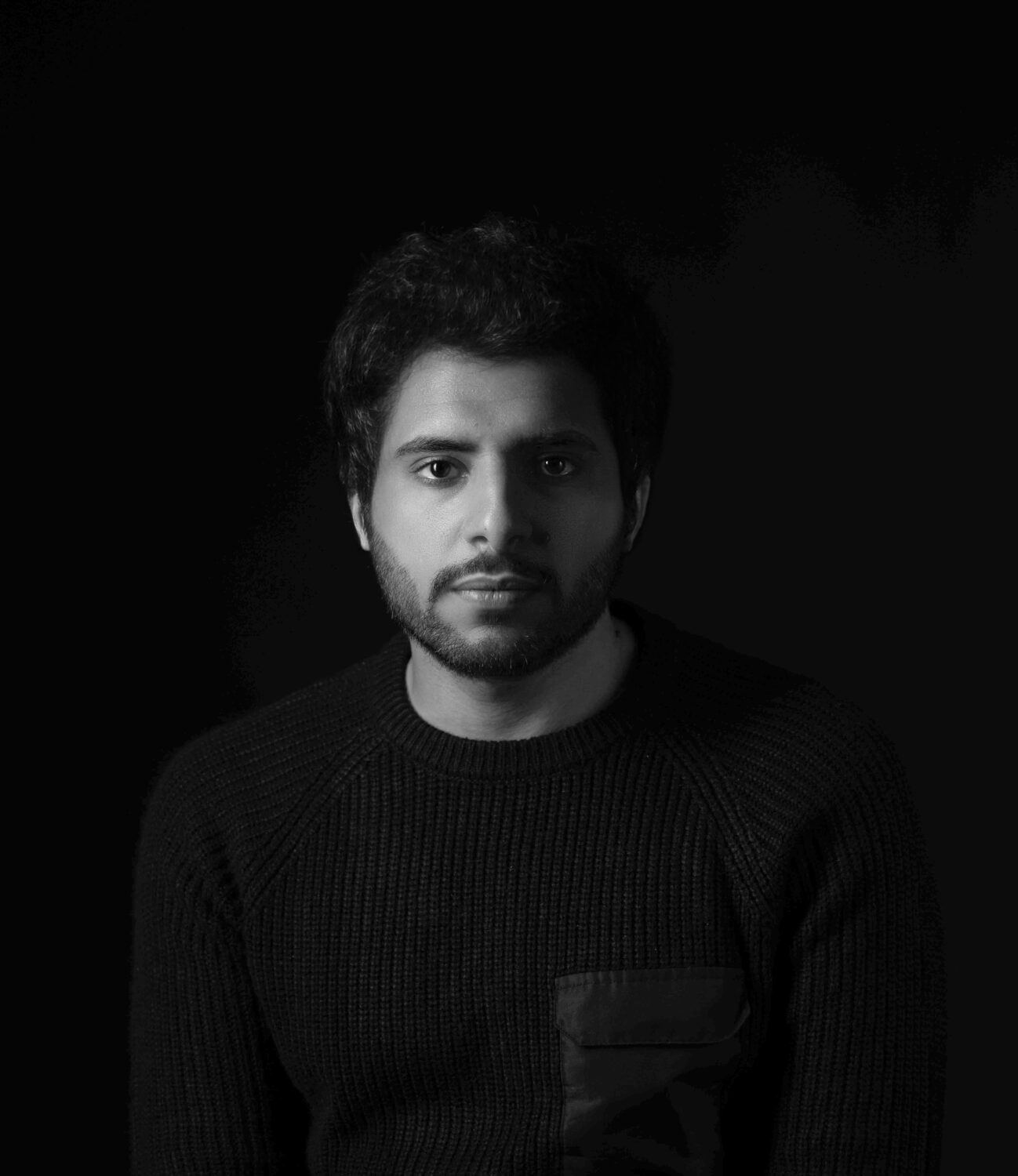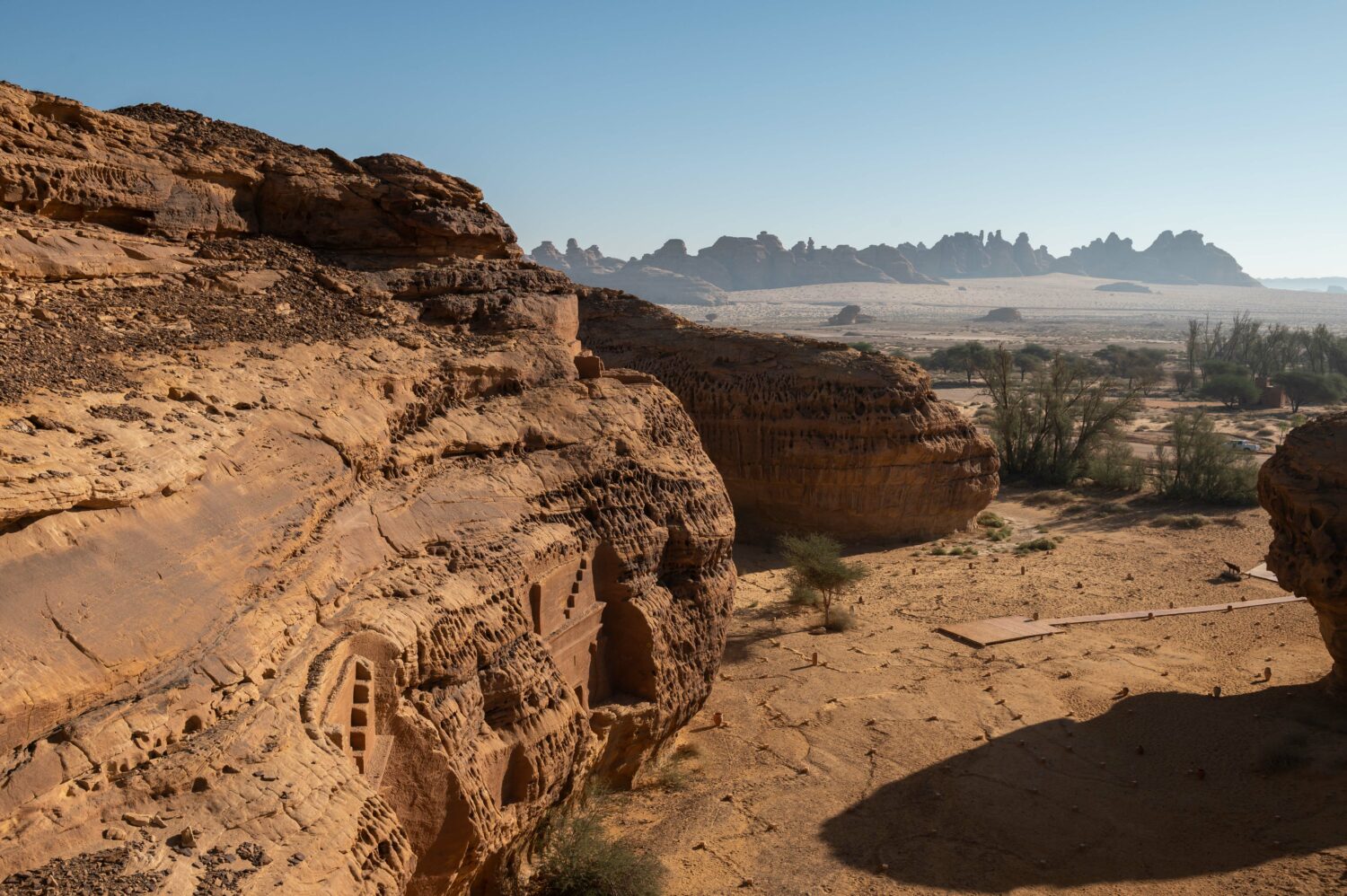Ithra Art Prize Winner Obaid Alsafi on Metaphysics and Saudi Arabia’s Burgeoning Art Scene
By Keshav AnandSaudi artist Obaid Alsafi, presently based in Riyadh, has been named the winner of the 6th edition of the Ithra Art Prize, the largest art grant in the MENA region, dedicated to supporting artists and the growth of creative output in the Arab world. Alsafi’s winning public artwork submission, Palms in Eternal Embrace will be unveiled at the opening of the 2024 AlUla Arts Festival on 8 February, in collaboration with the Royal Commission for AlUla (RCU), Saudi Arabia.
Alsafi tells Something Curated: “I was born in the desert, a vast space of emptiness against a clear horizon that often makes you feel vulnerable, yet curious… This desert environment inspired me and provoked my curiosity about metaphysics, which plays a central role in contemporary art, particularly in Saudi Arabia. Later I moved to and grew up near Qaryat Al Faw, a significant archaeological site in Saudi Arabia, which has profoundly influenced my work, instilling in me the notion of timelessness. The idea that a few archaeological pieces can redefine centuries of history is truly fascinating. This is the reason why, in my creative practice, I use AI to create rocks that could appear as if they were carved from ancient times. Essentially, I am conveying a message of relativity to what we perceive as our heritage.”

The artist’s winning proposal is a large-scale installation that will be made up of over 30 palm trunks made from metal, inspired by the 6,000-year-old Rajajil Columns in Saudi Arabia. These trunks, intricately woven together using locally sourced organic or recycled textiles, symbolise the potential to save endangered flora and fauna through advanced technologies, aptly showcased in the context of AlUla’s striking natural heritage and oasis landscape, in and amongst the region’s characteristic date palms.
“AlUla is a sacred space in terms of the natural landscapes. I had to conceive something that would seamlessly blend into the landscape while conveying a clear message and leaving the ground untouched. Palms in Eternal Embrace resembles more of a naturally grown oasis onto which we added another layer, another story. The significance of this approach lies in the fact that it’s not just an art installation; it’s a focal point in space that invites you to be responsive to your surroundings — the palm grove and the stunning mountain scenery,” Alsafi says.

Expanding on the Rajajil Columns’ influence on his work, the artist explains: “At first, Rajajil Columns might give the impression of a figure, whether human or animal, standing tall. However, upon closer examination, I discovered that the columns are pointing in mysterious directions, both towards the ground and the sky. This immediately reminded me of the AI neural network, a method that teaches computers to process data in a way that is inspired by the human brain. Inputs and outputs weave back and forth, in an eternal connection, between AI and humans, exactly as in the Rajil Columns that connect land and sky. It seems that the universe itself is communicating with us. Within the Rajajil Columns, there lies a concealed message.”
Alsafi’s work was selected by a jury including Farah Abushullaih, Head of Museum at Ithra, Nora Aldabal, Executive Director of Arts and Creative Industries at the Royal Commission for AlUla, and Emirati artist Mohamed Ibrahim, among others. Alsafi notes: “The artwork I proposed to Ithra is an international production for Saudi Arabia… We invite the world to take an interest in our culture and enable them to understand and embrace it. Winning the Ithra Art Prize means to me that Saudi Arabia is collaborating with the international art scene. By doing so, we are not losing our culture or our authenticity, but we are providing a platform for our local talent to participate and thrive.”
Feature image: AlUla landscape — oasis. © Royal Commission for AlUla